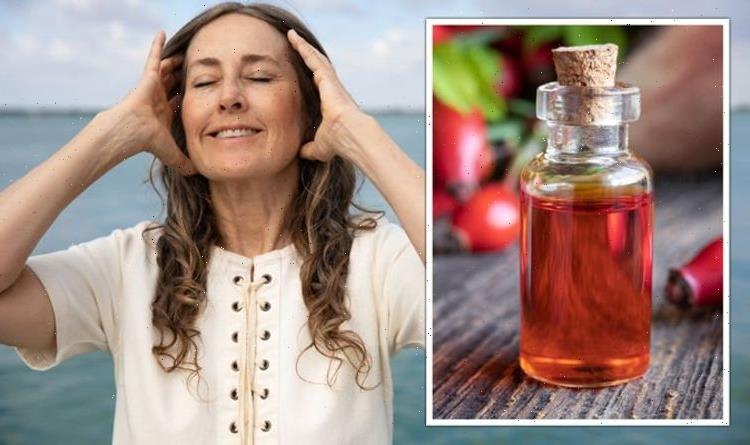Sarah Ferguson praises Sophie Wessex for speaking on menopause
We use your sign-up to provide content in ways you’ve consented to and to improve our understanding of you. This may include adverts from us and 3rd parties based on our understanding. You can unsubscribe at any time. More info
Joint pain is a common complaint in the UK, particularly among menopausal women. In fact, more than 50 percent report joint pains and aches. Women seeking relief from their symptoms, however, are often confronted with conflicting advice. Doctor Anne Henderson, consultant gynaecologist and accredited menopause expert, explains how one compound in the plant may offer relief from menopausal joint pain.
Of the 30 symptoms linked to menopause, joint pain is one of the most widely reported.
In fact, many studies have cited menopause as a precursor for joint pain.
This effect is down to a drop in oestrogen, which is a vital female hormone that reduces inflammation and protects joints.
Most women report experiencing joint pain in their spine, knees, hands, hips and shoulders.
READ MORE: Hair loss: How one KEY treatment can help stop hair loss in menopause

Treatment for pain, however, is currently limited to anti-inflammatory medications such as ibuprofen.
According to the World Health Organisation, more than 80 percent of the world’s population resort to herbal remedies as their first line of defence.
Doctor Henderson explained: “It is important to consider a full spectrum of treatment options including lifestyle changes, diet and exercise, but also herbal medicine and supplements that are backed by scientific evidence.”
Rose-hip extract, in particular, may help ease menopause symptoms.
They are packed with bioflavonoids, which have been shown to have both antioxidant and anti-inflammatory effects on the body.
Beyond helping protect against inflammation in the joint, however, rosehip has also been shown to have cooling effects, which may counter hot flush.
“Rose-hip extracts have been studied in multiple scientific trials, mostly for their cartilage protecting properties,” added Henderson.
“The active compounds found in rose-hip, in particular the galactolipids, known as GOPO, have been shown to have anti-inflammatory properties which can relieve pain, whilst some clinical studies show it was as effective as taking paracetamol.”

While researchers have argued that a drop-off in oestrogen may be the underlying cause of the pain in the joints, the theory is still disputed.
To prove the hypothesis, one experiment conducted on rats showed that when rats were administered oestrogen and progesterone, they saw a decrease in cartilage degradation and an increase in bone formation.
In other cases, researchers have determined that a drop in oestrogen may also be behind a decline in Bone Mineral Density (BMD).

Some studies have shown that BMD levels can drop by up to 25 percent in the five to seven years following the onset of menopause.
Lifestyle habits, and diet, in particular, have been shown to delay these effects, however.
Pulses, fish, meat and eggs are examples of food sources of protein, which can help build muscle mass and offload pressure on the joints.
Henderson added: “Drinking plenty of water also helps to retain joint flexibility, whilst staying active strengthens supporting muscles and keeps excess weight at bay – reducing the impact on load-bearing joints.”
Source: Read Full Article
